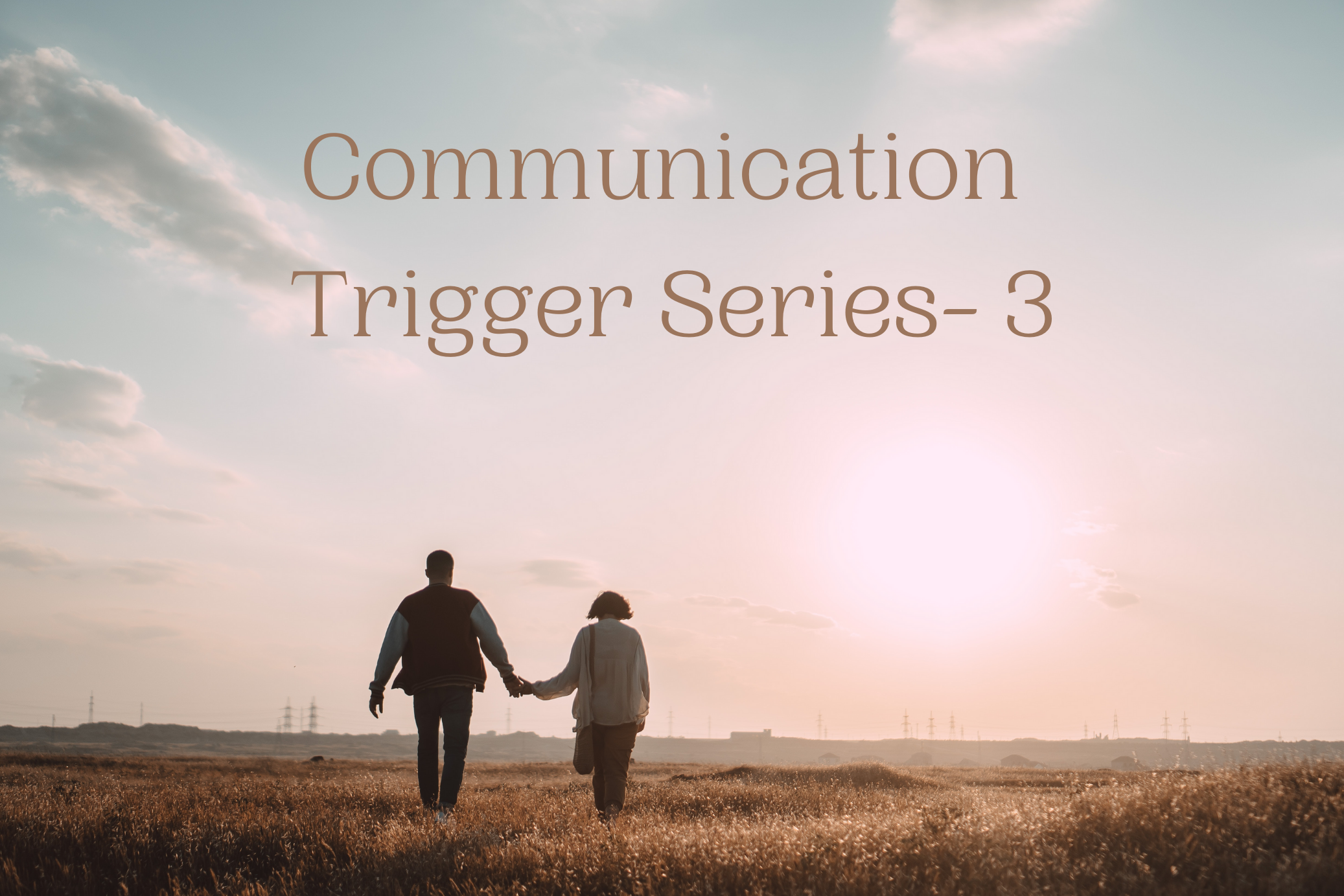Communication Trigger Series- Potentially Troublesome Communication Triggers

There are many different ways a person may be triggered: either by something you say, or sometimes what you do. The 5 triggers that will be talked about run the gamut: they can be verbal, nonverbal, from our past or freshly created in our relationship, or an interesting combination of them all.
- Historical Triggers – For the first trigger, here is an example. We’ve all got memories that are painful, and something said today by our partner can dredge up something negative from our past, triggering a negative response. Think of a song you hear that makes you sad every time you hear it, its connected to something sad in your past. We all have pleasant and warm memories also. Like your favorite restaurant you go to not so much for the food but because you have a good memory there triggering a positive response. These are historical triggers. They are echoes of the past, events and experiences that have happened and made an impression on us, either positive or negative.
- New Triggers – These are not echoes of the past. A new trigger is one that is created in your relationship. For example, your partner hands you something to read and says, “I don’t think you’ll understand all of this because it’s really scientific…” and you lash out, “I’m not dumb!” Your partner might say, “I never said you were- I simply said it was very scientific.” What your partner has done is unconsciously triggered a negative response, because you took those words to be insulting. New triggers are things that come up in your relationship – they aren’t echoes from the past.
- Non-verbal Triggers – There are certain non-verbal triggers that can set us off. The tongue usually trips us up, but this is when other body parts do it. For example, your partner rolls their eyes when you say something they don’t agree with or sighs loudly. It’s disrespectful. Or you are in the middle of pouring your heart out to your partner and they get up and leave the room. You’re so angry and hurt, you want to throw something at their retreating back. Your partner’s tongue didn’t do one bad thing here: their turning their back on you set you off. Their body language expressed contempt and disrespect, cause a negative trigger response.
- Verbal Harassment Triggers – People do this one every day, here is an example. Think about when someone says, “Get over it,” or “whatever” when you are debating something. These are what I call the verbal harassment triggers. For some people, it wouldn’t bother them in the least. For others, it may set them off because to them it’s disrespectful and dismissive, and no one want to feel like that.
- Combo Triggers – This is when it is both verbal and non-verbal triggers called combo triggers. I’ll give you an example. You already learned about verbal triggers and non-verbal actions such as eye rolling. It’s easy to figure out how these two can work together to trigger a negative response. But how about those things you don’t and don’t do, which together combine to make a really powerful negative trigger?
Here’s an example. You make your partner an elaborate dinner. You serve your partner and expect you’ll sit down together at the dinner table to share this great meal. Instead, your partner takes their plate, walks off to the living room and plops down in front of the TV. Your partner didn’t say, “You’re the best cook ever and I really appreciate this effort you made,” nor did they sit down at the table and enjoy it with you.
Your partner may be thinking “thank you.” But the fact that they didn’t say it or went to sit in front of the television may trigger a very negative reaction from you, interpreting this behavior to mean you’re taken for granted, though that wasn’t your partner’s intent.
If you bring it up later in a vague way and say, “You take me for granted,” your partner may be clueless as to why you felt that way. The negative trigger here was a missed expectation: you expected to hear words of praise and spend some quality time at the dinner table together. When you didn’t receive the verbal and non-verbal response you were expecting, it made you feel bad.
You can see how quickly things can become a miscommunication disaster. Any of these triggers can damage your relationship. Too many of them can cause permanent damage and drive the person you love away.
Stay up to date with the blogs, the next two coming up will be teaching you how to become a conscious couple, until next time!

